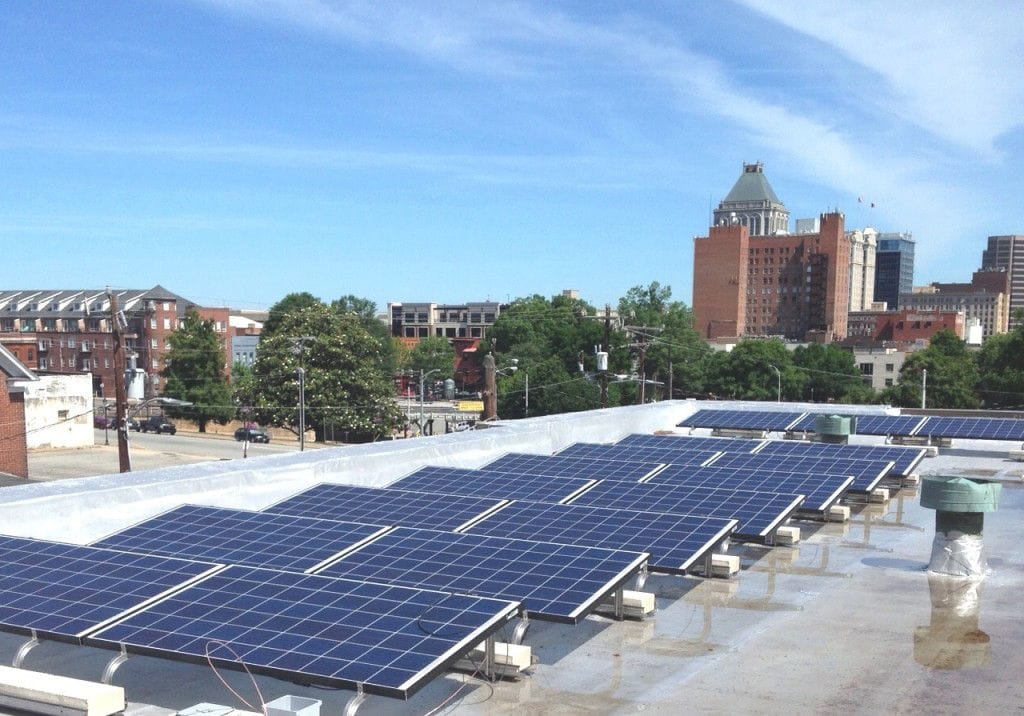Solar Power Good For All Duke Customers
As pastor of a predominantly African-American church in Greensboro, I, the Rev. Nelson Johnson, have been visited by three individuals selling a “solar power hurts the poor” message. The claim is that the poor are left to subsidize more affluent customers who buy rooftop solar power systems – because the nonsolar customers must pay more than their share for large, expensive power plants.
This is part of a national strategy coordinated by monopoly electric utilities in several states. It has been rejected by the NAACP’s national board, various state NAACP chapters and the Congressional Black Caucus. Nevertheless, it’s being pushed here now, which is an affront to the people of North Carolina.
The NAACP agrees that solar power helps communities of color and all customers. One reason is that every new solar panel reduces overall usage from the electricity grid, reducing the need to keep building expensive power plants and continually raising rates. Reducing the cost of electricity for the poor and reducing North Carolina’s carbon footprint reflect both moral and economic progress, which the religious community supports.
As for the claim that nonsolar customers must pay more than “their share” for power plants: That concept is based on the outdated and broadly rejected notion that high-profit Duke Energy can continue to operate as a monopoly, thus forcing captive customers to pay a higher price for a product – electricity from large, polluting power plants – that others choose to replace with rooftop solar.
We are urging Duke Energy CEO Lynn Good to open a dialogue with us and other North Carolinians about our common interest in an energy future that benefits all communities by reducing power bills, creating jobs and reducing the pollution that is harming our health and moving an already horrific climate situation toward a disastrous future for all of Creation.
With “No Money Down Solar” – under the bipartisan state Energy Freedom Act that Duke is lobbying against – experienced companies with strong financial backing will install solar systems on the property of churches, businesses, homes and government buildings for no up-front cost, then sell the customer the power at a fixed rate lower than Duke’s electricity. Only four states disallow such third-party sales, including North Carolina, where customers are still limited to buying power from their monopoly utility. For most, that’s Duke Energy.
There is a profound irony in Duke’s vigorous opposition to the Energy Freedom Act: Because the monopoly’s customers are increasingly choosing rooftop solar, Duke indicates it will try to force other captive customers to pay more for dirty power plants. Then, from the other side of its corporate mouth, Duke is trying to block the very avenue for those other customers to go solar.
In other words, even if Duke were correct about solar harming low-income North Carolinians, the Energy Freedom Act solves that issue for many of them by eliminating the up-front cost of rooftop solar, allowing low and fixed-income folks to reap the benefits of lower cost electricity.
Every rate hike hurts real people who cannot continue bearing the ever-increasing electric bills resulting from Duke’s “build plants, raise rates” business model.
Solar power is already bringing many thousands of jobs to this state. We’re calling on Duke Energy to help ensure that those economic benefits are shared among traditionally disadvantaged communities.
Increasingly, North Carolinians are coming together across traditional divisions, and we will not be divided on this issue that is profoundly important for so many economic and environmental justice reasons.
The Rev. Nelson Johnson is pastor of Faith Community Church in Greensboro. Jim Warren is executive director of NC WARN in Durham.

